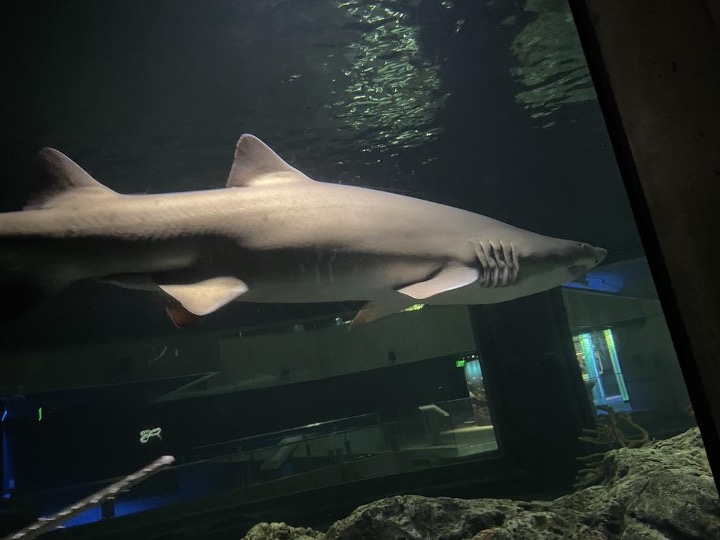According to the U.S. Environmental Protection Agency: “Sustainability is based on a simple principle: Everything that we need for our survival and well-being depends, either directly or indirectly, on our natural environment. Sustainability creates and maintains the conditions under which humans and nature can exist in productive harmony, that permit fulfilling the social, economic and other requirements of present and future generations.”
For students at Loyola, this means selecting products wisely, being mindful of how much and what is wasted and considering the cradle-to-grave life cycle of items accumulated and discarded.
Sustainability on campus is a matter that Loyola is taking seriously and heading the movement is Elle Everhart, Loyola’s newly hired sustainability coordinator. Everhart joined the Loyola team in July after the position had been vacant for a year. Her job entails working with budgets, campus environmental staff, working to get the word out about initiatives for sustainability and working with different departments around campus to be more sustainable.
Everhart, a recent graduate of the University of Maryland, said that her motivation comes from attending a school with a massive number of environmental activists. It came also from her years in University of Maryland’s living-learning community where she worked with peers on community service projects, learning about leadership and building bridges in a diverse society. She gained experience in the program and was hooked. Everhart had always been interested in sustainability, with early attempts to make compost in a Tupperware container at her home. She explained that the ability we have as humans to ensure that we live in harmony with our environment also inspired her. One of Everhart’s main desires—to get students involved—is because she is a “firm believer that any type of change at universities has to come from the students.” She said there is a “[fundamental] power that students need to harness and realize they have,” emphasizing that, because Loyola is a private institution, students fund almost all activity on campus.
In Loyola’s shift toward sustainability there are “several fires burning at one time.” Knowing that students rely mainly on social media to remain in touch with both their peers and the school, Everhart and her team have updated and rebooted several venues including a Facebook page, a Twitter, an Instagram (@greengreyhounds), a blog (www.blog.loyola.edu/sustainability) and even a Pinterest. Weekly, on the e-boards in Boulder and around campus, notices about campus environmental events and issues are posted, encouraging students to become more aware and to participate and learn. Everhart’s hope is to tap the energy and enthusiasm of the Loyola student base and recruit their help in leadership toward a more sustainable existence.
Beyond spreading the word about campus actions regarding sustainability, Everhart explained that composting, a key practice in sustainability, is central to the effort on campus. She is currently in touch with Waste Neutral Group, the company that will be working with Loyola to compost. Before switching to food vendor Parkhurst, which is very committed to helping with the sustainability effort, especially composting, Loyola was working with Sodexo, which, in terms of sustainability, Everhart bluntly claimed was a “composting failure.” With her initiatives and those of the Environmental Action Club, along with many other contributing parties on campus, that is changing.
At the root of this effort though will have to be the student body. Composting at Loyola began with the implementation of composting bins in Boulder, placed with recycling bins and a trash bin. Currently there is talk of moving the composting bins around campus; if the bins in Boulder are successful, they will expand to Iggy’s. New bins are on the way as well with additional separations for landfill, recycling and composting. The new bins are composed of recycled milk bottles and will bear the Loyola logo.
Not only are there newly installed compost bins—and more on the way—but the kitchenware used in Boulder is or will be compostable itself. As of now, the cups are compostable, made of corn, as are takeaway containers, and coming in soon will be compostable utensils, as well as compostable plates.
Everhart and her team will be holding informational tables in the atrium outside of Boulder to spread the word to support sustainability among students. Following fall break, Campus Sustainability Week will commence—October 21 through October 25—and will feature National Food Day on October 24. For every weekday, a different event is being planned in coordination with a daily theme.
Finally, through Blue Water Baltimore’s Adopt a Stream program, Loyola University Maryland has adopted a stream that actually runs through campus, with much thanks to Dr. Elizabeth Dahl of the chemistry department. Dahl has been working on the project for the past two years, now with the assistance of Everhart. To maintain adoption, it is required to walk the stream twice monthly and to hold three cleanups per year. Loyola’s next stream cleanup is scheduled for October 22, coinciding with the water-focused day of Campus Sustainability Week.
Students can get involved in a wide variety of ways. If interested in joining the Environmental Action Club, or if one has an idea regarding campus sustainability and ways to improve the matter, Byron Watson, president of the Environmental Action Club, can be reached at bcwatson@loyola.edu. Lists of environmentally focused volunteer opportunities and all data regarding Loyola’s usage of electricity, waste, etc. will be featured on the sustainability blog. Students are encouraged to take initiative themselves, as changes are made faster when everyone puts in the effort.














































































































